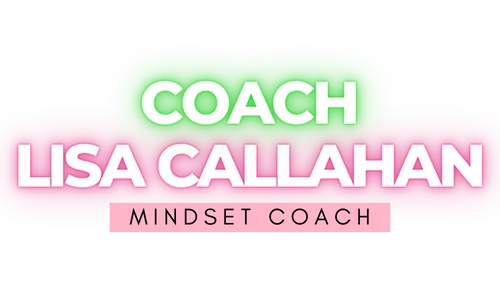THIS EVENT HAVE ended, but don't worry—you won't miss out! Click HERE to join my FREE Facebook Group to stay in the loop about the next one. See you there!
Join my free Habit Buster Masterclass
on Tuesday, January 13th, at 1:00 PM ET
You Don’t Have a Willpower Problem.
You Have a Deeper Craving.

Hi, I’m Coach Lisa — and I help women stop emotional eating by turning inward instead of dieting harder.
For 30 years, I believed I was addicted to sugar, chocolate, and food in general.
But what I was really craving… was relief from guilt.
Like many women, I obsessed over food and body image, searching for the perfect diet to fix what I thought was broken. The truth? I wasn’t broken — I was emotionally buried.
Underneath my cravings, I found layers of guilt, shame, and unspoken pain from childhood — feelings I had never given myself permission to feel or heal.
Once I stopped chasing diets and started getting curious about why I was eating, everything changed.
Now, it’s my mission to help you discover what’s going on underneath your food noise — so you can finally feel free, peaceful, and empowered to live without food running the show.
The Latest on the Blog...
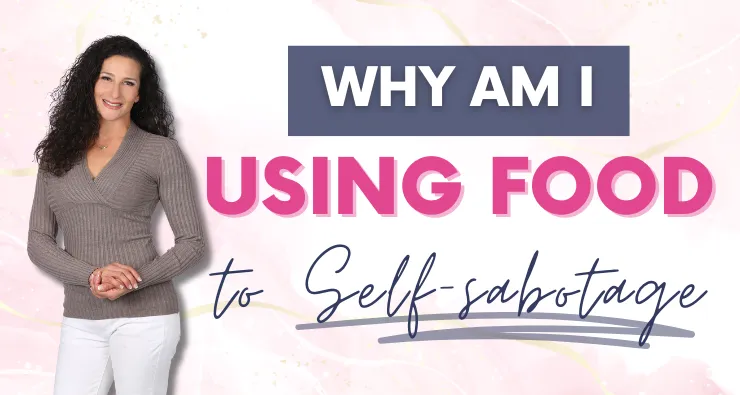
Why Am I Using Food to Self-sabotage
Today I want to dive deep into a topic that’s close to my heart—and probably yours too if you’ve struggled with emotional eating for years: why do we use food to self-sabotage?
I know this pattern all too well. For decades, I lived in that exhausting back-and-forth cycle: strict dieting one minute, overeating the next, and never really understanding why I kept sabotaging myself. Maybe you’ve told yourself the same thing I did—stress eating is the only way I can cope. Or maybe you believed that soothing yourself with food was harmless. But deep down, you know the truth: it’s hurting you more than it’s helping.
Let’s talk about what self-sabotage with food really is, why it happens, and how you can start breaking free from it gently, with awareness and compassion.
The Hidden Cost of Self-Sabotage
Every time you eat your emotions, you’re silently sending yourself a message: I don’t care about myself enough to change. That might sound harsh, but it’s the truth I had to face myself.
Using food in this way starts to feel like stabbing yourself in the back. It’s not just about the cookies or chips—it’s about what happens after. The frustration, the anger, the disappointment, the shame. Over and over again, you feel powerless to stop.
At some point, you have to admit the real battle isn’t between you and food. It’s between you and you.
A Tale of Two Wolves
One of my favorite stories to share with my students is called The Tale of Two Wolves.
An old Cherokee chief tells his grandson, “A terrible fight is going on inside of me, between two wolves. One wolf is evil—anger, guilt, self-pity, resentment, lies, inferiority. The other wolf is good—joy, peace, love, kindness, faith, compassion.”
The grandson asks, “Which wolf will win?”
The chief replies: “The one you feed.”
When you use food to numb your feelings, you’re feeding the wrong wolf. You’re strengthening the part of you that thrives on self-doubt, shame, and pain. But when you pause, reflect, and choose to love yourself, you begin feeding the wolf that leads to joy, peace, and true freedom.
Food Was Never Meant to Be a Weapon
Food is supposed to nurture us, not punish us. It’s meant to be enjoyed, savored, and shared—not scarfed down until you feel sick, not inhaled so fast you don’t even taste it, and definitely not used as a weapon against yourself.
I know from experience that there’s nothing enjoyable about eating until you feel like you might puke, or convincing yourself that food will solve boredom, stress, or loneliness. That’s not comfort—it’s self-sabotage disguised as relief.
Change Is Challenging, and That’s Okay
Here’s a truth bomb: change is challenging. But that doesn’t mean it’s impossible.
Think back to when you were five years old, learning to write your ABCs. It was awkward, frustrating, maybe even painful. But you did it—because it mattered. If you hadn’t gone through that challenge, you wouldn’t be able to read this today.
It’s the same with emotional eating. Change feels uncomfortable because it’s important. No challenge, no change. But remember: you’re worth the challenge.
Why Self-Sabotage Happens
Let’s get something straight. Self-sabotage isn’t laziness, weakness, or lack of willpower. It’s your subconscious mind trying to protect you in a backward way.
Think of your subconscious like a bodyguard for your old self. It wants to keep things familiar, even if familiar means painful. Diets, quick fixes, and weight loss schemes don’t work because they don’t address this. They just pile more shame onto the cycle.
That’s why you can’t “out-diet” self-sabotage. You have to learn how to recognize what’s really happening under the surface.
Fear: False Evidence Appearing Real
Most self-sabotaging behaviors come down to fear—fear of change, fear of being seen, fear of failing again. You may not call it fear, but excuses like “I’m too busy,” “I’m too old,” or “I’ve always been like this” are fear-based thoughts in disguise.
Fear has two choices:
Forget Everything And Run
Face Everything And Rise
If you’ve been stuck rereading the same painful chapter of your life, it’s time to turn the page. Facing your fears doesn’t mean reliving trauma or opening a can of worms you can’t close—it means gently, compassionately recognizing that the battle is inside of you, and you have the power to change the outcome.
You Hold the Keys to Your Own Happiness
When it comes to breaking the cycle of self-sabotage, no diet, no partner, no circumstance outside of you holds the key. You do.
That’s both the scary part and the empowering part. Because while your subconscious may trick you into thinking weight loss or control over food will finally make you happy, the truth is happiness comes from the inside out.
If you’re constantly waiting for the “perfect” time, or the “right” diet, or the “first 10 pounds gone,” you’ll always find yourself back in the same cycle. That’s not because you’re broken. It’s because you’re trying to outsource happiness to something outside of yourself.
The moment you decide to face everything and rise is the moment things start to change.
How to Interrupt the Cycle of Self-Sabotage
So how do you actually do this? Let me share three powerful shifts you can start practicing today.
1. Pause and Choose Love
When the urge to eat strikes—especially when you’re not hungry—pause. Ask yourself: Will this decision lead me closer to loving myself, or farther away?
That one question alone can help you step into awareness instead of autopilot.
2. Observe Without Judgment
Becoming curious instead of judgmental changes everything. Instead of beating yourself up with “Ugh, I did it again,” get curious: What was I feeling when I made that choice? What story did I tell myself that led me here?
Curiosity opens the door to awareness. Judgment keeps you locked in shame.
3. Speak to Yourself with Compassion
You cannot bully yourself into food freedom. If you’ve been calling yourself weak, hopeless, or broken, it’s time to flip the script. Start small: write a love note to yourself at night and read it first thing in the morning. Little shifts in language create massive shifts in how you treat yourself.
Connecting With Your Spirit
I also believe that food freedom isn’t just physical or mental—it’s spiritual. And no, I’m not talking about religion or meditation apps. I’m talking about reconnecting with you.
Simple practices like drinking a sip of water in the morning while telling yourself, “Connect with your soul,” or putting your bare feet in the grass for two minutes of breath work, can anchor you back to your deeper self. When you’re connected spiritually, your choices with food start to shift naturally.
You’re Not Broken—You’re Ready
Here’s what I want you to remember: using food to self-sabotage doesn’t mean you’re broken. It means you learned a coping mechanism in the past that no longer serves you. And now it’s time to learn something new.
Awareness, compassion, forgiveness, and self-trust are the tools that will guide you. And every single time you pause and make a choice rooted in love instead of punishment, you strengthen the wolf inside of you that leads to joy, peace, and freedom.
Your Next Step Toward Food Freedom
If this message speaks to your heart, I want to invite you to take the next step with me.
✨ Sign up for my Three Simple Steps to Stop Self-Sabotage and Emotional Eating masterclass. If you’re listening to this later and the live date has passed, don’t worry—the replay will be waiting for you.
📅 And if you’re ready for deeper support, book your free Food Freedom Discovery Call with me. Together, we’ll uncover the hidden patterns behind your self-sabotage and create a personalized path toward healing.
Because you deserve to live a life where food no longer invades every thought, where you wake up proud of yourself, and where you finally feel free.
Transformation Stories from
Crush That Food Thing Program

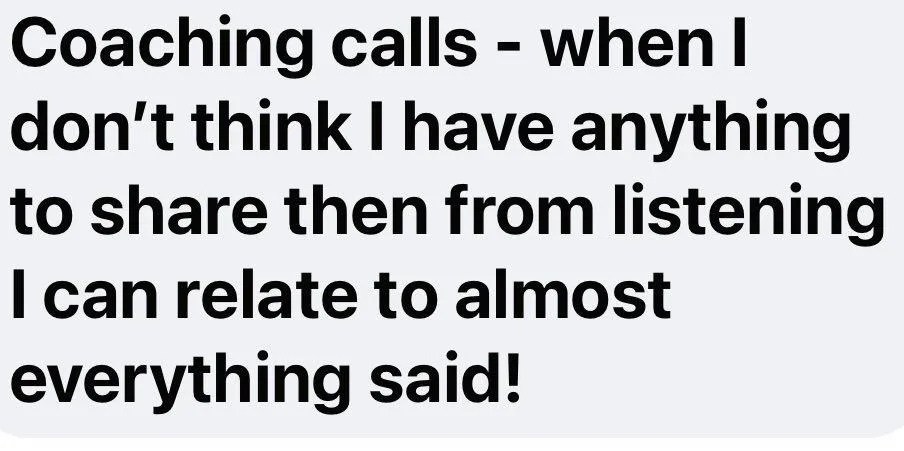
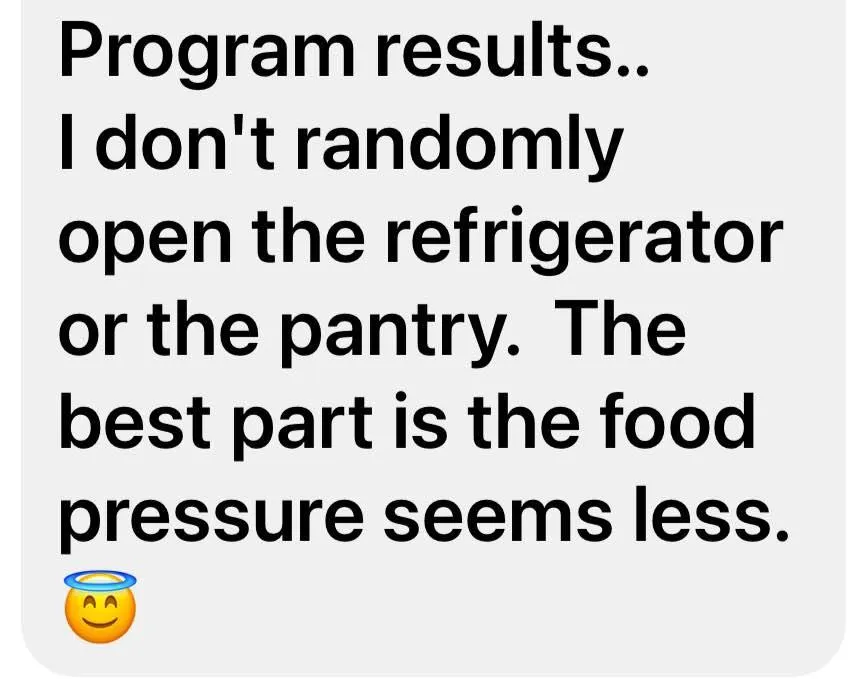
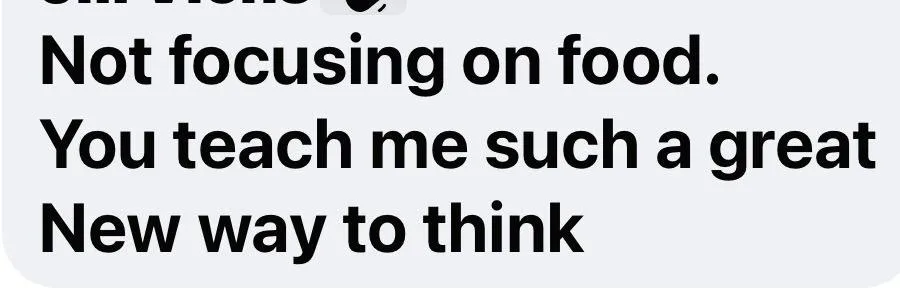
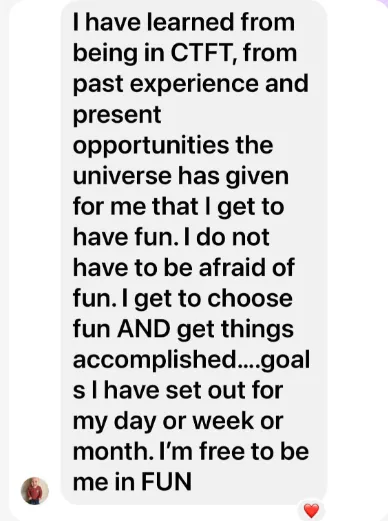
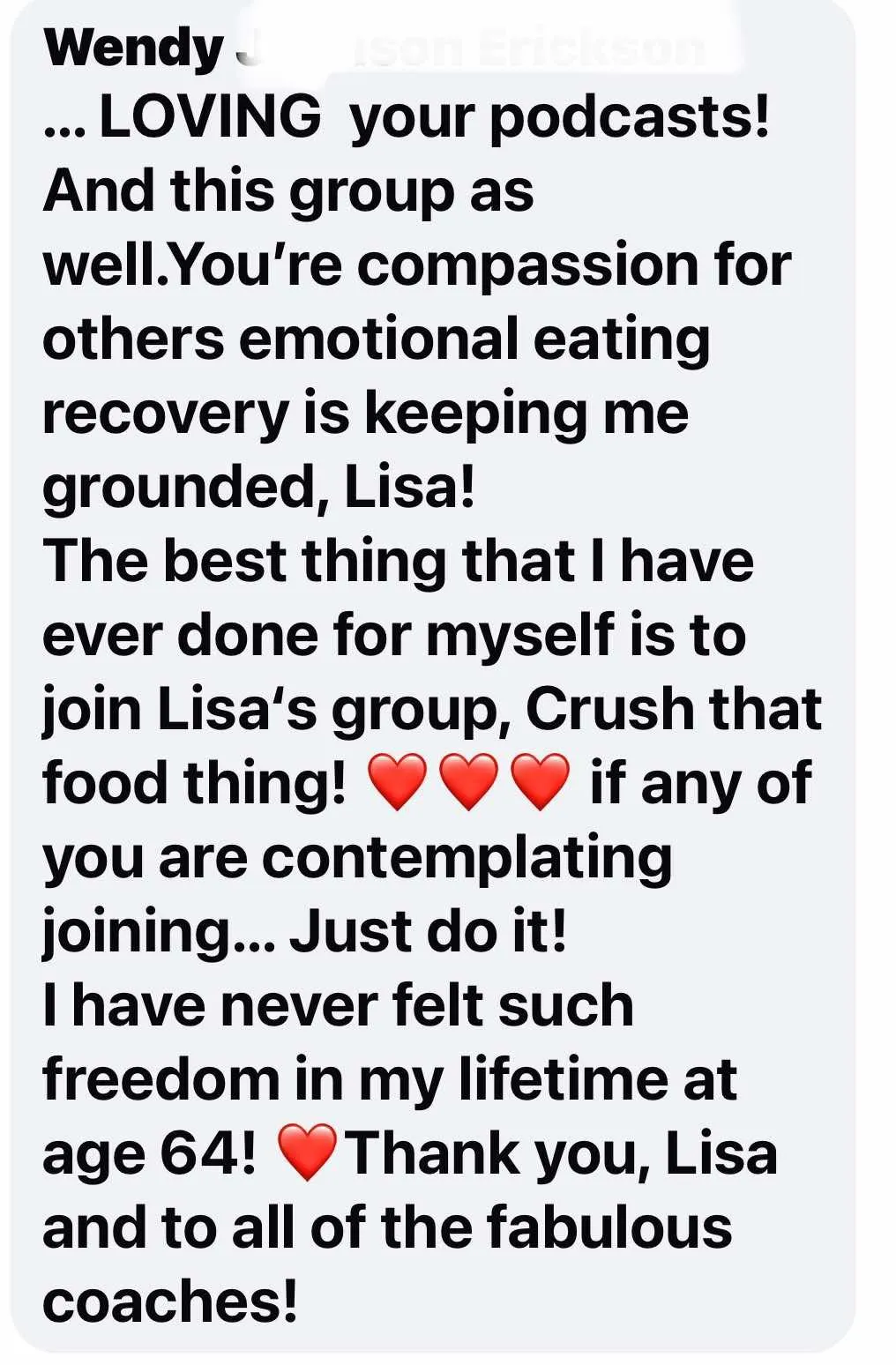
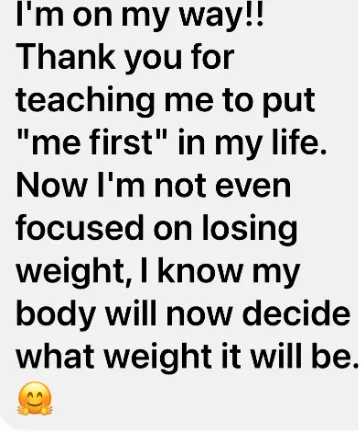
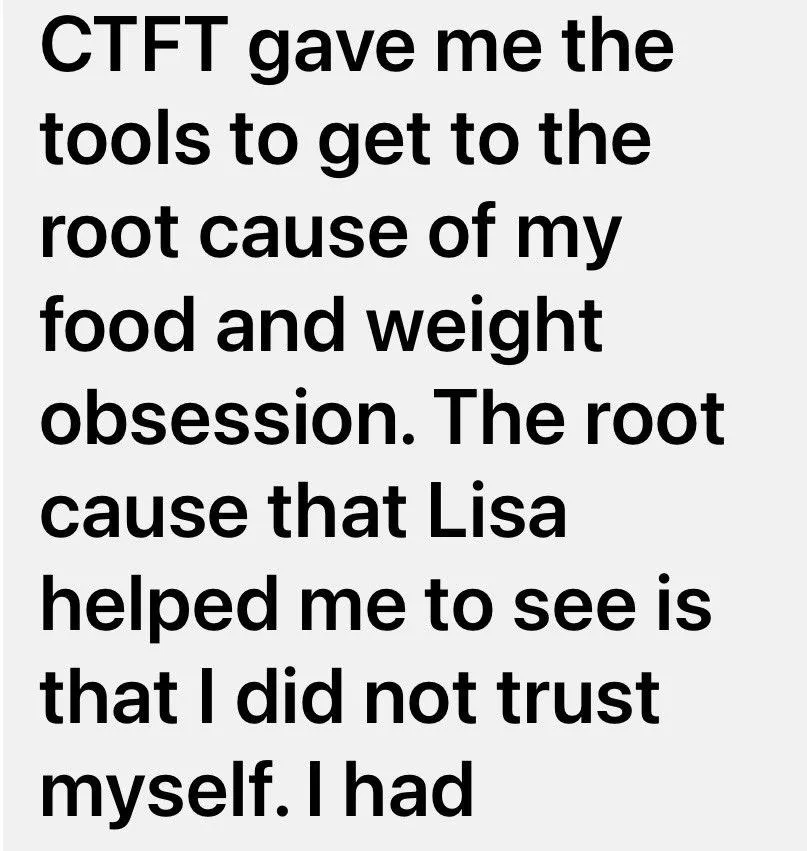
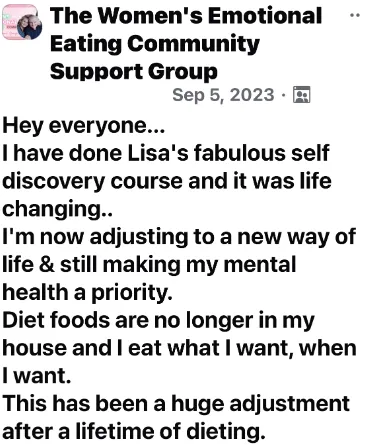

TUNE IN TO THE
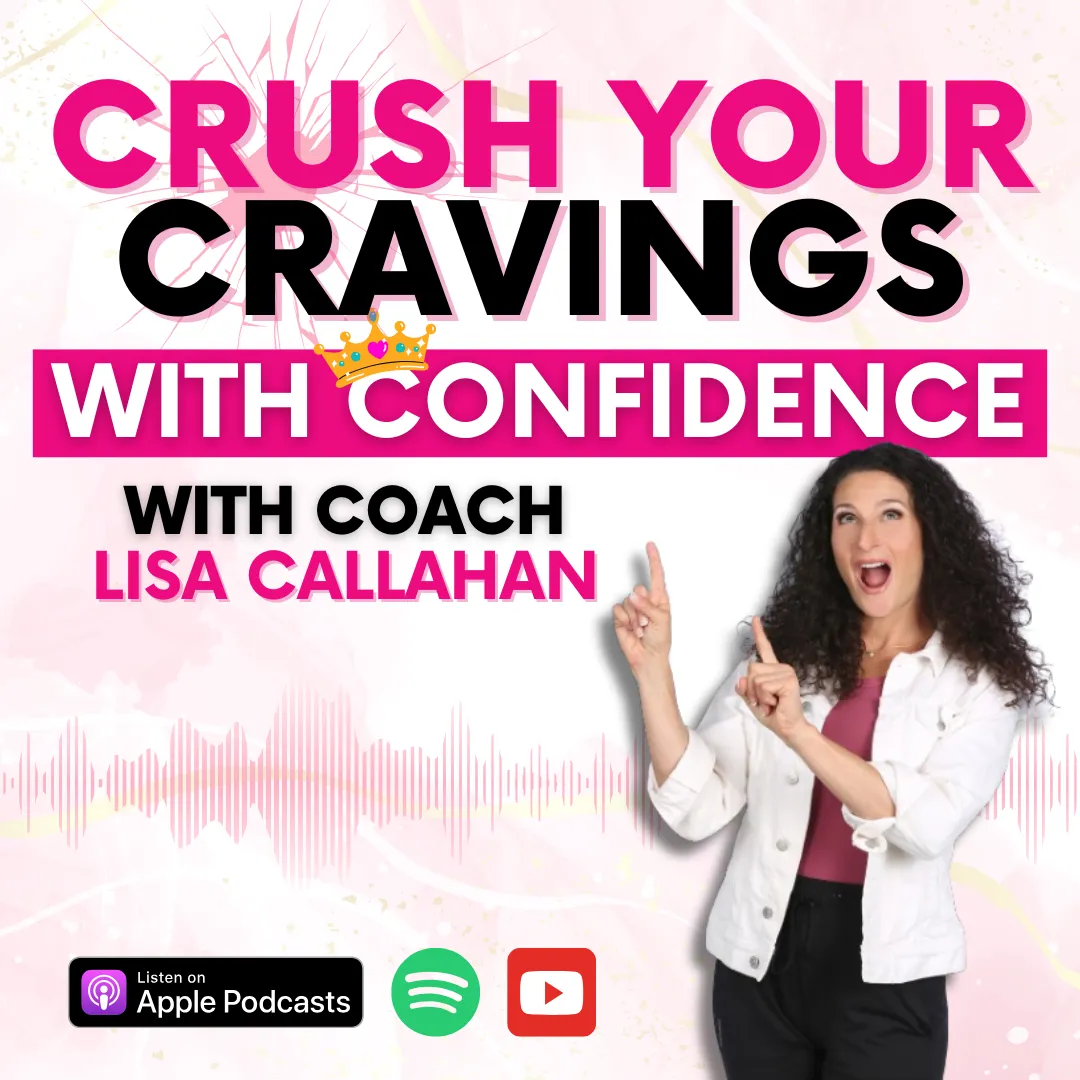
© Coach Lisa Callahan 2025 | All rights reserved | Terms & Conditions | Privacy Policy
